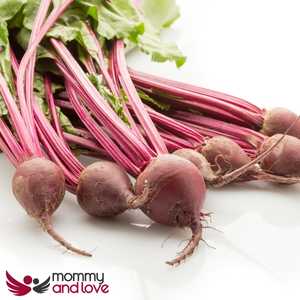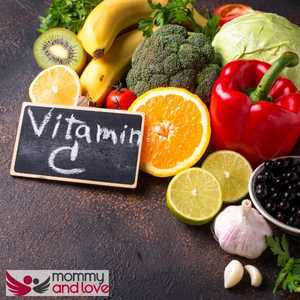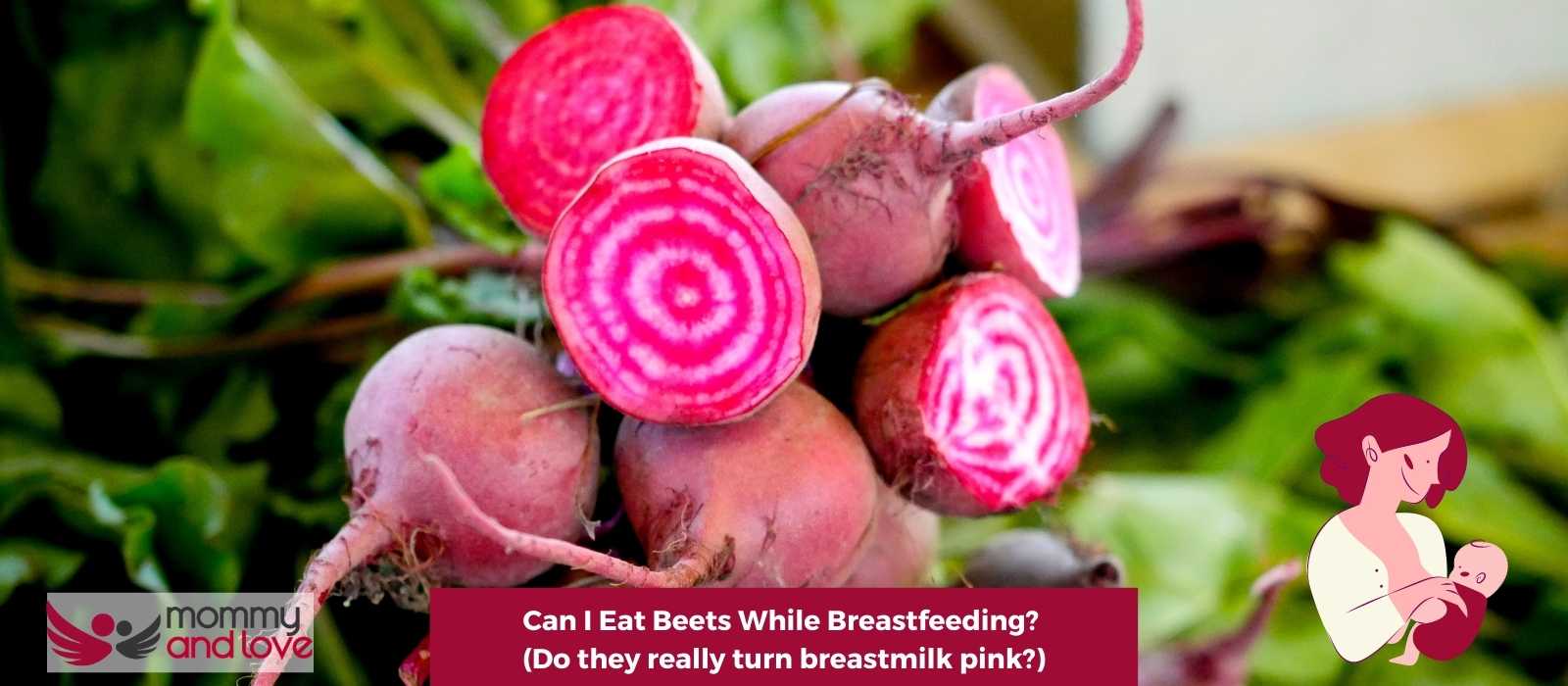When you’re breastfeeding, it’s important to be mindful of what you eat to make sure you have enough milk and you don’t accidentally pass allergens to your baby. Some foods can pass through to your baby in your milk, and others can make you feel uncomfortable or sick. So, can breastfeeding mothers enjoy beets? Let’s take a look.
Yes, you can eat beets if you are breastfeeding, they are a great source of folate and other nutrients. Some women are concerned that the betalain pigments in beets will pass through to their milk and change its color, but this has not been found to be a problem. However, since beets are a root vegetable, they can cause gastrointestinal tract issues like gas and bloat. Additionally, beets can interact with certain medications, including blood thinners. We dig into all the issues with eating beets whilst nursing!
Are Beets Healthy?

Beets (also known as beetroot) are high in nutrients and have several health-promoting characteristics.
They can boost your brain, heart, and digestive system, improve athletic performance, reduce inflammation, and even slow the formation of cancer cells.
Best of all, beets are delicious and simple to incorporate into your diet. They’re fantastic in salads, side dishes, smoothies, dips, and juices, for example.
Are Breastfeeding Mothers Allowed to Eat Beets?
Avoiding red foods is a persistent myth about breastfeeding nutrition. This statement is likely to be attributed to superstition rather than truth. When a woman quits consuming beets, carrots, and red apples while breastfeeding, she deprives herself of nutrients and vitamins, which have no positive effect on her or the child’s health. Because beet foods are a rich source of trace elements, they are safe to consume during breastfeeding.
When Can a Nursing Mother Eat Beets?
Most moms happily eat boiled beets immediately following the birth of their child. If you are still concerned about injury, wait until he is 3 months old and gradually introduce the vegetable into his diet. It is preferable to drink in the morning and then monitor your kid for signs of allergies throughout the day.
What Are the Benefits of Eating Beets While Breastfeeding?

There are many benefits to beets while breastfeeding. Beets have many beneficial properties because they are high in fiber, vitamins, and minerals, all of which can help keep a nursing mother healthy and her milk supply strong.
In addition, beets are a good source of antioxidants, which can help protect both the mother and her baby from harmful toxins.
They are a good source of vitamins C and B6, both of which are essential for a nursing mother. Vitamin B6 is important to increase milk supply, while vitamin C helps keep the immune system strong. They also contain small amounts of folic acid and essential fatty acids.
Beets are also a good source of potassium, magnesium, and manganese, all of which are beneficial minerals for a breastfeeding mother.
Beets can help improve blood circulation and help with high blood pressure, which can be beneficial for both the mother and her baby. They can also help improve digestion and can be helpful in preventing constipation.
Beets are also a low-calorie food, making them a good choice for mothers who are trying to lose excess weight.
What Are the Issues With Eating Beets?
There can be some issues with beets while breastfeeding. First, since beets are a root vegetable, they can cause gastrointestinal tract issues like gas and bloat. Additionally, beets can interact with certain medications, including blood thinners. If you are taking any medications, it’s best to speak with your doctor before consuming beets.
Why Is Eating Raw Beets Forbidden?
During the first year of a child’s life, moms should avoid all products that have not been heated, that is, in their raw form. Beets are one of them. Cucumbers and tomatoes, which are in season, are exempt from the rule. The reason for this is straightforward.
Generally, root vegetables shouldn’t be eaten raw. Other vegetables contain not only vitamins but also microbes. If an adult’s body is unable to adapt to a meeting with microorganisms, the infant’s body may be unaffected, resulting in unfavorable repercussions in the digestive system’s activity. Of course, beet juice contains a high concentration of vitamins. However, the body should be saturated with helpful chemicals only in methods that are safe for the child throughout the nursing phase.
Are Beets Good for Breast Milk Supply?
There is some anecdotal evidence that suggests beets can help increase milk supply. While there is no concrete scientific evidence to support this claim, beets are a good source of nutrients for breastfeeding mothers and can provide some health benefits.
Beets are a high-nutritional-value vegetable that is high in fiber and minerals. It is thought that, in addition to increasing the mother’s milk supply, beets aid to improve breast milk by providing blood purification capabilities that will benefit your infant.
Beets also contain beta carotene, which is necessary for breast milk production. They also have the added benefit of providing iron and nutrients. All of these nutrients can help keep a nursing mother healthy and her milk production strong. It is important for lactating mothers to maintain good milk production or sometimes increase milk supply for hungry babies.
Do Beets Make Breast Milk Red?
Some people claim that beets can make breastmilk red. This is might be true for some nursing moms. There is no scientific evidence that suggests breast milk is not affected by beets in any way. While there can be some slight changes in the color of urine after consuming beets, this is not a cause for concern.
Can a Breastfed Baby Be Allergic to Beets?
The bright red color of beetroot juice, which stains even the skin of the hands and the plate, causes many nursing moms to doubt the vegetable’s hypoallergenicity. It is well known that red foods can cause diathesis in young children; consequently, moms avoid consuming red vegetable and fruits such as beet and carrots while breastfeeding. In the case of beets, nursing mothers should rest easy: natural colors that give beets their vibrant red color are hypoallergenic and do not cause a baby’s reaction. It entirely depends on individual intolerance to the food.
However, if you notice any of these signs and symptoms on your baby, seek medical attention immediately.
- swelling
- itchiness
- skin rashes or hives
- difficulty breathing
- wheezing
How Many Beets Can I Eat When Breastfeeding
Lactating women should plan their meals carefully so that they do not harm their infants and make sure they have enough milk or even more milk in some cases. They should eat anything that promotes lactation to increase breastmilk supply. Only if the baby has a history of allergies or suffers from a congenital condition do nursing mothers require a particular diet.
Mothers with healthy children should limit beet consumption to the first two months of the lactation period giving birth or until the newborn’s digestive tract is fully formed. Furthermore, beets ingested in a fair amount by the mother during breastfeeding can only benefit.
In your third month, try enjoying some delicious beet food like borscht. If the baby enjoys the new milk flavor, gradually increase the daily intake of the root vegetables to 150 g every other day.
How to Cook Beets While Breastfeeding
The most beneficial chemicals are retained when boiled beets are steamed with a peel and tail. If you don’t like cooked beets, make beet soup or stew with additional vegetables. You may also bake root vegetables wrapped in foil in the oven and then serve them as a salad with vegetable oil.
Hot condiments and spices should be avoided because they can alter the taste and fragrance of the milk.
Beets’ positive effect on the bodies of nursing mothers makes them not only permissible but also highly recommended.
Beets are maybe the most underappreciated vegetable. After all, few people consume it on a daily basis. And people’s feelings about this root crop are mixed. Some dislike it, while others regard it as an ordinary, nondescript vegetable. However, no New Year’s Eve celebration is complete without traditional herring tucked inside a fur cloak.
Take Away on Beets for the Breastfeeding Mother
Beets can have many positive effects on a breastfeeding mother. They can help increase milk production, provide iron and nutrients for the nursing mom, or even boost breast milk by providing blood purification capabilities that will benefit your infant.
Beets can also make breastmilk red in color but this is no cause for concern as it’s harmless to the baby. If you are worried about how beets affect your child while they’re at an early age, then limit their consumption to two months after birth where they may enjoy some borscht with no risk of allergy.
The most beneficial chemicals are retained when boiled beetroot is steamed and served without a skin so if you don’t like cooked beets try making soup! Lastly, hot condiments and spices should be avoided while breastfeeding as they can alter the taste and fragrance of the milk. So go ahead and enjoy some beets, whether in your salad or soup, during these special few months post-birth. Your baby will benefit from them!

This article was written by Sandra Baker – full time writer and the mother of four amazing kids (including twins!)
She’s also a breastfeeding counselor and has spent years helping new parents learn how to care for their children. When she’s not writing or caring for her children, Sandra likes to spend time reading and taking walks with her husband.




